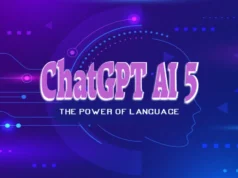How can GPT-based chatbots utilizing AI technologies revolutionize conversational agents?
The Game-Changing Power of GPT-Based Chatbots: How AI is Revolutionizing Conversational Agents
Introduction
Artificial Intelligence (AI) has made significant strides in recent years, and one of its most impressive applications
is in the realm of conversational agents. Chatbots, powered by AI algorithms, have undergone major transformations,
thanks to the advent of GPT-based models, or Generative Pre-trained Transformers. These advanced AI models have
revolutionized the way chatbots communicate and interact with humans, providing a more natural and immersive
conversational experience. In this article, we explore the game-changing power of GPT-based chatbots and how they
are reshaping the future of conversational agents.
Understanding GPT-Based Chatbots
GPT-based chatbots, such as OpenAI’s GPT-3 (Generative Pre-trained Transformer 3), leverage deep learning techniques
to understand and respond to human language. These models are pre-trained on vast amounts of text data, enabling
them to generate coherent and contextually relevant responses. Unlike earlier rule-based chatbots that relied on
pre-defined scripts, GPT-based chatbots have the ability to generate human-like responses by understanding the
context and nuances of a conversation.
GPT-3 takes conversational AI to a whole new level. It consists of 175 billion parameters, making it one of the
largest language models ever created. This massive size allows it to grasp the complexities of language and generate
remarkably coherent and natural-sounding responses. The model can perform a wide range of conversational tasks,
including answering questions, engaging in debates, and providing contextualized information on various topics.
The Game-Changing Impact of GPT-Based Chatbots
The game-changing power of GPT-based chatbots lies in their ability to provide highly personalized and human-like
interactions. With the old rule-based models, chatbots would often produce generic and repetitive responses that
felt robotic. GPT-based chatbots, on the other hand, can understand the context and generate responses that mimic
human conversation, making interactions more engaging and satisfying for users.
Another significant impact of GPT-based chatbots is their potential to transform various industries. They can be
deployed in customer service platforms, marketing departments, and even healthcare settings. For instance, chatbots
can assist with customer inquiries, provide product recommendations, and offer immediate support, enhancing customer
satisfaction. In healthcare, GPT-based chatbots can help answer common medical questions, provide information on
symptoms, and even triage patients based on criticality.
The Future of Conversational Agents
As GPT-based chatbots continue to evolve, the future of conversational agents seems promising. These AI-driven models
are expected to become more intelligent and adaptable, offering increasingly accurate and relevant responses. The
ability to understand and respond to human emotions is an area of active research, as chatbots become more empathetic
and intuitive in their interactions.
Additionally, the integration of GPT-based chatbots with other technologies like natural language processing, speech
recognition, and sentiment analysis will further enhance their capabilities. This integration could significantly
impact industries such as education, e-commerce, and entertainment, as chatbots become more proficient in understanding
and meeting the needs of users.
Conclusion
GPT-based chatbots are revolutionizing the world of conversational agents with their advanced AI capabilities. The
ability to understand context, generate human-like responses, and personalize interactions has made them game-changers
in various industries. As these models continue to advance and integrate with other technologies, we can expect even
more transformative power from GPT-based chatbots in the future. The exciting possibilities that lie ahead are sure
to reshape the way humans interact with AI, opening up endless opportunities for innovation and improvement.









